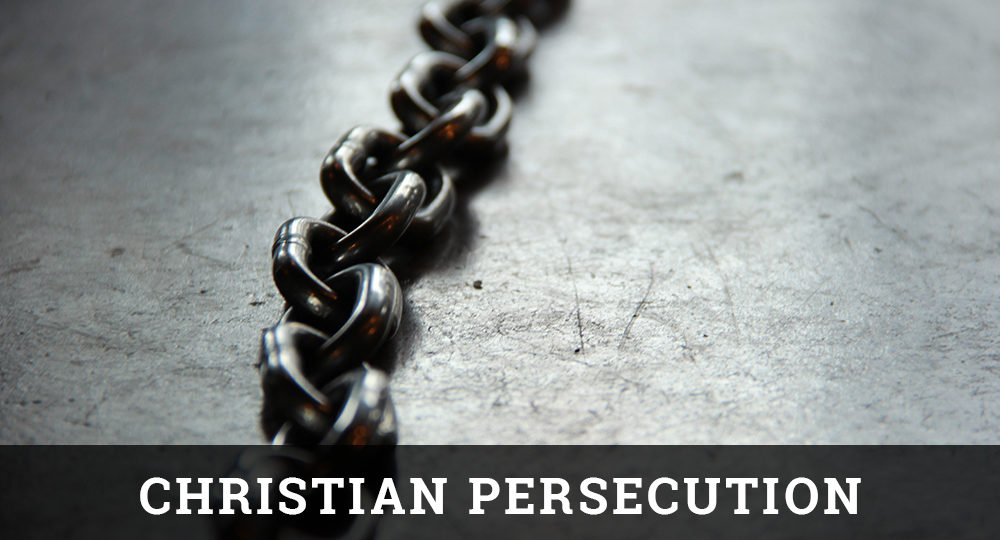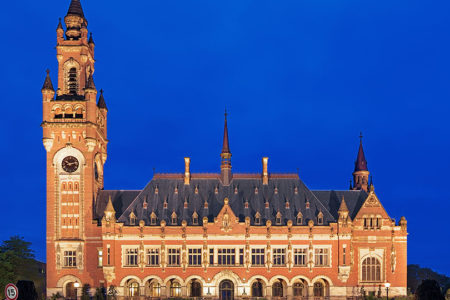They Cry in Silence May/Jun 2004
Each Sunday, millions of Western Christians go to worship with Bibles in hand, usually one for every member of the family. Such a public display of God’s Word is an inherent right we seldom think of as an increasingly unique aspect of life in this world.
But clearly, this privilege is increasingly under attack in countries where millions of our fellow believers and their families are attempting to survive.
Two thousand years ago, in a world strangled by malignant paganism, churches were seized, people were dragged from their homes and torn to bits by wild beasts for the pleasure of the masses, and believers were tortured and beaten to death for their faith.
Some will say, “Regrettable, but that was then, and this is now.”
Those who see it that way need to take a good look at the world outside the boundaries of countries where the right to carry a Bible, enjoy public worship, and speak openly of their faith without fear is taken for granted.
Here is a glimpse beyond the narrow world of the West.
Mass slaughter of Christians has accelerated at an astonishing pace. Ten thousand have been slain in the past five years alone. At least one thousand churches have been burned, along with some eighty thousand Christian homes.
Carrying a Bible openly in North Korea can mean a death sentence or long stretch in prison.
A recent report revealed that in the northern state of Jigawa, Nigeria, Muslim radicals burned down ten churches and more than one hundred Christian properties. An undetermined number of believers died in these attacks, which the extremists justified by charging that a Christian had blasphemed the prophet Muhammad.
A leader of the Nigerian Christian community countered the pretext by saying the attack was “premeditated and [demonstrates the] continuous persecution of the Christian community here. We have faced these attacks over the years, and the situation is becoming more difficult for us to practice our Christian faith.”
And if there is a hint of suspicion that things are improving, one need only look to central Nigeria where radical Muslims attacked and killed forty-eight Christians in a farming village in February. Most were slain in a church, where they were attempting to take refuge.
On the more personal side, soldiers captured a Christian in Vietnam and beat him severely with batons. Witnesses reported seeing blood flowing from his nose and mouth. But that did not stop the soldiers. They then shocked him with an electric rod until he fell to the ground unconscious.
Some congressional leaders seem to be growing more aware of these atrocities and are acting in response to Christians who have taken the time, not only to pray, but to inform elected officials of the vicious wave of persecution Christians are experiencing in other lands.
A fact-finding team of four U.S. congressmen expressed shock at the level of Christian persecution in India at the hands of extremist Hindus. Joseph Pitts (R-Pa.) said the team would take the matter up with both Indian and American authorities, calling it “a great human rights tragedy.”
According to police, attacks on Christians in India rose from seven in 1996 to 380 in 2003. Unofficial estimates place last year’s total at six hundred. And Indian courts have at least four thousand cases pending involving assaults on Christians.
These undeniable facts of life should serve as a dramatic reminder of the biblical mandate of Hebrews 13:3:
Remember them that are in bonds, as bound with them; and them who suffer adversity, as being yourselves also in the body.
If you are fortunate enough to live in the West, you have an obligation to your brethren who do not. And when you go to church next Sunday, let the Bible in your hand cause you to give thanks to the Lord for your freedom and remind you to pray for those in the body of Christ who are deprived of the same privilege.






